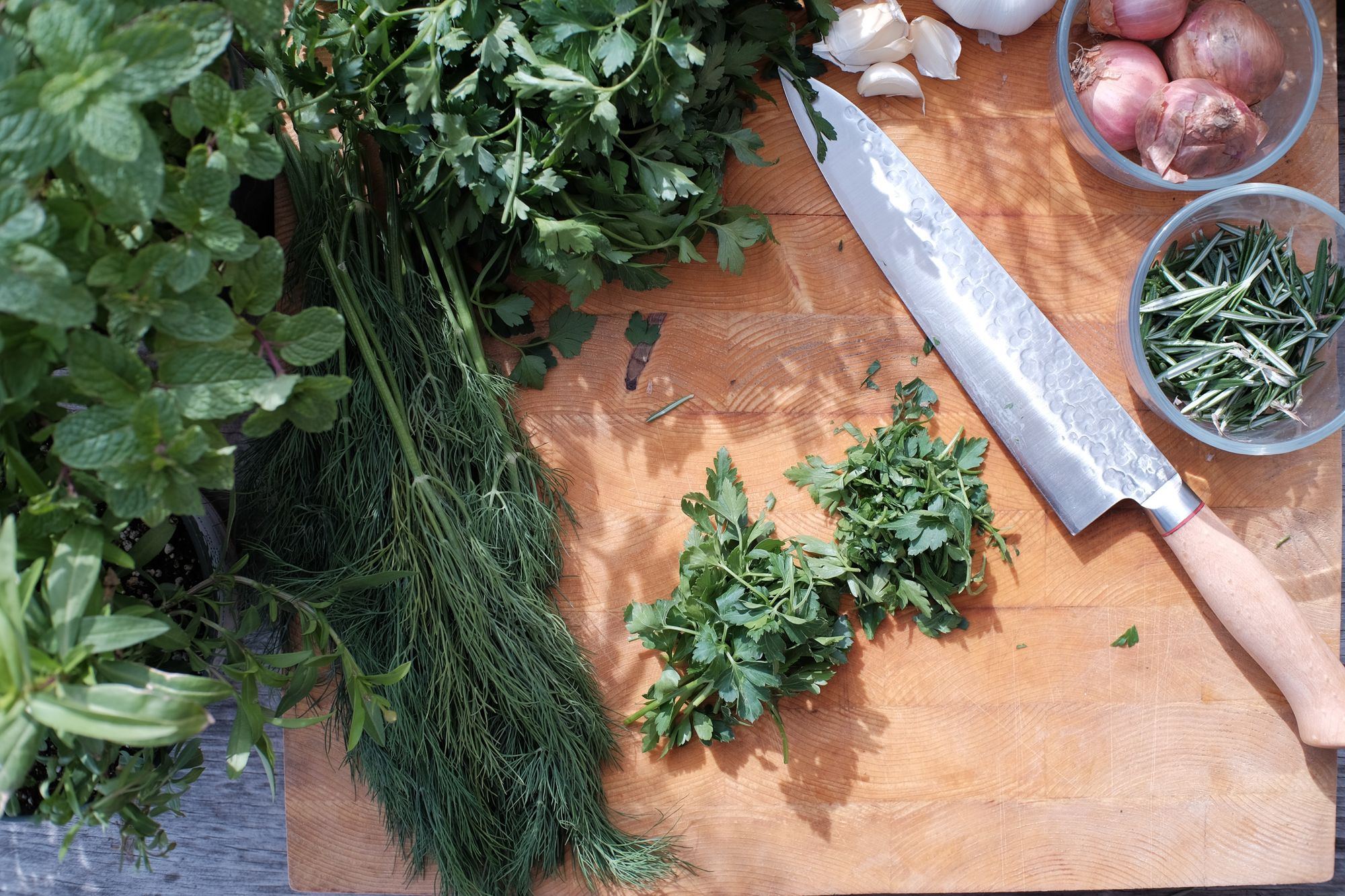Herbs not only add taste to your meal, but they also provide several health advantages. Here are five of the best ways to incorporate herbs into your diet:
1. Adding Herbs to Recipes
Adding herbs to dishes is one of the finest ways to use them. Herbs can be used in various recipes, such as soups, stews, casseroles, and pasta dishes. You can add them to salads for flavor and nutrition. When cooking with herbs, it is important to remember that they can be used as a healthy alternative to salt and fat. This will help you create more nutritious meals that are still full of flavor. Here are some of the best herbs for cooking:
Basil – Basil is a multipurpose herb that works well in a range of cuisines, including pesto and meals with tomatoes. It has a mildly sweet flavor with hints of mint and clove.
Oregano – Oregano is a staple in many Italian dishes, such as pizza and pasta sauce. It has a strong, pungent flavor that can add depth and dimension to any dish.
Rosemary – Rosemary is commonly used in roast chicken or lamb dishes. Its woody, pine-like flavor pairs well with other hearty flavors.
Thyme – Thyme is another versatile herb used in various recipes, from stews to soups. It has a subtle lemony flavor that freshens up any dish.
These are just a few of the best herbs for cooking. With so many options available, you may experiment to discover the ideal taste combination for your next dish.
2. Making Herbal Teas
Another great way to use herbs is by making herbal teas. Herbal teas are both delicious and good for you. There are many different types of herbal tea recipes that you can try depending on your preferences. The popular herbs chamomile, lavender, mint, and ginger are among many that may be used to prepare tea.
When it comes to herb-based teas, there are several alternatives to consider. Some of the most popular herbs for tea include chamomile, lavender, and mint. Each of these herbs has its unique flavor profile that can create a delicious and refreshing cup of tea. Chamomile is often used as a relaxant due to its calming effect, while lavender is well-known for promoting sleep. Mint, on the other hand, has a refreshing and cooling effect that may be savored at any time of day. While many other herbs can be used for tea, these three are some of the best options for those looking to enjoy a delicious and healthy cup of herbal tea.
3. Adding Herbal Extracts to Smoothies or Juices
If you are looking for an extra nutritional boost, you can add herbal extracts to smoothies or juices. This is a great way to get the benefits of herbs without having to cook with them or drink them in tea form. Depending on your demands, there are a variety of herbal extracts from which to pick. Some popular extracts include ginseng, garlic, echinacea, and milk thistle.
Herbs can be a great way to go when adding a flavor boost to your favorite smoothie or juice. Not only do they pack a punch in terms of taste, but they can also add various health benefits. For example, basil can assist in reducing inflammation, while mint is well recognized for its capacity to aid with digestion. And those are just two of the many options available. Other popular choices include cilantro, ginger, and lavender. So next time you’re looking to add a little something extra to your smoothie or juice, consider reaching for some fresh herbs. Your taste buds (and your health) will thank you.
4. Buying Pre-Made Herb Products
If you don’t have time to cook with herbs or make your own herbal teas, there are many pre-made herb products that you can buy at your local grocery store or online. These products include herb-infused oils, vinegar, honey, and salt scrubs. You can also find dried herbs that can be added to recipes or used to make tea.
5. Growing Your Own Herbs
You can grow your own at home if you want the freshest possible herbs. This is an excellent option if you have the space and the time to dedicate to it. Depending on your preferences, either inside or outdoors can be used to produce herbs. If you decide to grow your own herbs, research what type of care each herb needs so that it will thrive in your home environment.
Herbs are a wonderful addition to any home garden. They may be used for therapeutic purposes in addition to giving your food taste and nutrients. When choosing which herbs to grow, there are many factors to consider. If you have limited space, choose herbs that are compact and easy to care for. If you have a particular dish in mind, choose herbs that complement the dish’s flavors. And if you’re interested in using herbs for medicinal purposes, you’ll want to choose herbs with well-documented health benefits. Having so many choices makes it challenging to know where to begin.
Here are the six best herbs to grow at home, regardless of your needs or preferences.
Basil: Basil is a versatile herb used in various dishes. It has a slightly sweet flavor that goes well with tomatoes, making it a popular choice for pasta sauces and pizzas. Basil is also relatively easy to care for, making it a good choice for beginner gardeners.
Rosemary: Rosemary is a fragrant herb commonly used in Mediterranean cuisine. It has a strong flavor and is often used to season lamb, chicken, and fish dishes. Rosemary is also said to have several health benefits, including improved digestion and cognitive function.
Sage: Sage is another fragrant herb that is commonly used in savory dishes. It has a slightly bitter taste that pairs well with fatty meats like pork and duck. Sage is also known for improving brain function and memory retention.
Thyme: Thyme is a delicate herb with a mild flavor that goes well with potatoes, carrots, and other root vegetables. Thyme is relatively easy to grow and can be used fresh or dried.
Mint: Mint is a revitalizing plant that works well in both savory and sweet meals. It has a cooling effect when eaten raw, making it a popular addition to salads and smoothies. You can also use mint to make tea or add it to cocktails for a refreshing twist.
Lavender: Lavender is an aromatic herb with a variety of uses. It can be added to baths for relaxation or made into sachets to keep clothes smelling fresh. Lavender oil can also be used as a natural insect repellent or added to lotions and potions for its soothing properties.
Conclusion:
You can incorporate herbs into your diet in many different ways to enjoy their health benefits. Some of the best ways to do this include adding them into recipes, making herbal teas, adding extracts into smoothies or juices, buying pre-made products containing herbs, or growing your own at home.

